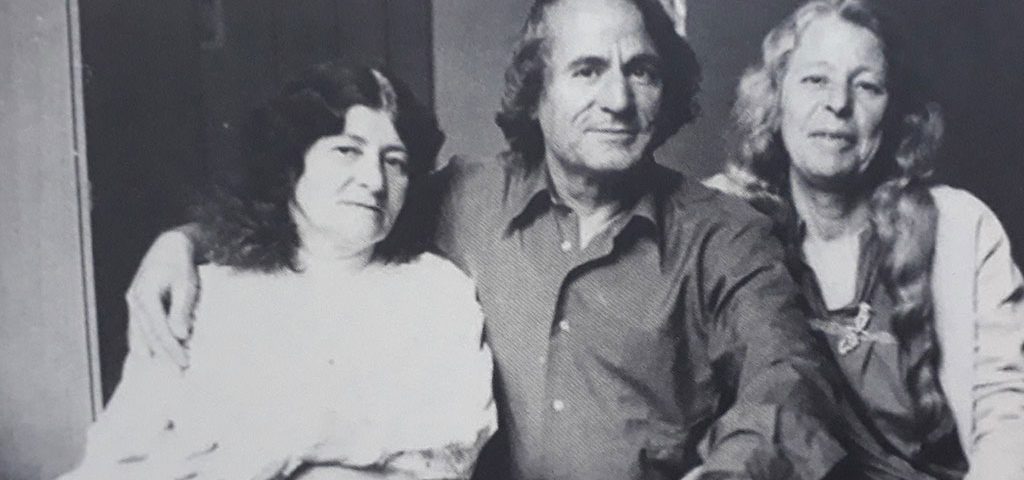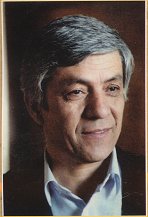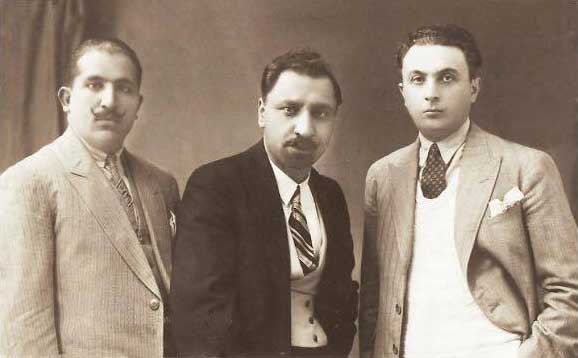Jamal Nabaz (1933-2018)
Jamal Nabaz (1933-2018)

Prof. Jamal Nabaz (Kurdish: Jemal Nebez, جهمال نهبهز ) was born on the 1st of December 1933 in Silémaní in Baban province in Kurdistan (Iraqi Kurdistan) and passed away on 8th Dec 2018 in Berlin as the son of a tolerant Muslim scholar who raised Jemal in a multilingual environment. Parallel to attending the public schools in Iraq he had the opportunity to study Islamic law, philosophy and theology with his father and other well known scholars of the time.
As a young scholar Jemal noticed, that not only the political situation of Kurdistan but also the Kurdish language were in a holistic situation. If the political situation was to change, then a reform of the Kurdish language was an absolute necessity also.
Dr Nebez wrote many essays on the political, social and human rights of the Kurds in Arabic Iraqi newspapers. One of these publications was a critical article published in spring 1954 in “Sawt al-Ahali” (voice of the population). The article took up the issue related to a press-interview given by Celal Bayar -the president of Turkey at the time- during his visit to the United States. Bayar allegedly denied the existence of any other ethnic groups but Turks in Turkey.
During the two years he had taught in Kirkuk, he created the basis for the first physics and mathematics books in the Kurdish language. In 1956, he prepared a stencilled script on Algebra and in 1960, succeeded in publishing the first physics book in Kurdish under the title, “Introduction into the Mechanics and Properties of Matter”, including a rich glossary of Kurdish terms pertaining to physics and mathematics. In the course of his sojourn in Damascus, he managed to write a booklet in Arabic on “The Kurdish Freedom Movement and its Aims” in 1957. He published another book in the same year, titled “Kurdish in Latin Script”, in Baghdad.
Dr. Nebez has constantly advocated for a Kurdish Unified Alphabet as a core solution for Kurdish linguistic issues. His proposal was published in his book “Zimaní Yekgirtúy Kurdí “Towards a Unified Kurdish Language” in 1997. He emphases in a conference speech in Paris in 1993 that:
Because the Kurds write in various scripts this causes an obstacle for the exchange of their linguistic products. As a student, I was already of the conviction – which I have held to this day – that the lack of a single, unified alphabet constitutes a great calamity for the Kurdish people. The introduction of a mutual alphabet would lead to better communication amongst Kurds and contribute to a convergence of the various dialects and modes of expression. I am talking here of convergence and not of absolute unification. A unified Language needs a unified grammar of which there is none today. So much more important is the matter of a single, unified alphabet. I was, and still am, of the opinion that the Latin alphabet must be reformed and promoted. The promotion of the writing of the Kurdish language in the Latin alphabet does not mean that its writing in the Oriental script should be completely ignored.
Source: “The Kurdish Language from Oral Tradition to Written Language“, Paris, Conference on ” The Kurdish language toward the year 2000″, 28/11/1993
He has published many books on Kurdish language and he also translated some literary works, including works of Gogol and Shakespeare into Kurdish. His latest book “Kurd dírúk ú kultura wan” in North Kurdish has been published by Avesta Book. Callers are able to download an English essay on this book “The Kurds: History and Culture” as an PDF e-Book at the bottom of this page. Please see list of publications below.
Publications
- Cirokí Gerdaweke “The Tempest”. Translation of William Shakespeare’s play into Kurdish, Baghdad 1955.
- Lalo Kerim “Uncle Kerim”. A Kurdish novel, published in Hewlér 1956, second edition in Stockholm 1986.
- Xiwéndewaré be Zimaní Kurdí “Primary Education in the Kurdish Language”. On Problems of Schooling and Learning and How to Solve Them, Baghdad 1957, Second Edition in Stockholm 1987,
- Nusíní Kurdí be Latíní “Writing Kurdish in Latin Letters”, Capxaney Me’arif, Baghdad 1957.
- Wergérran Hunere “Translation is an Art”, Silémaní, Capxaney Jhín, 1958.
- Palto “The Coat”. Translation of Nikolai Gogol’s novel into Kurdish, from Arabic and English, Baghdad 1958.
- Seretay Míkaník ú Xomallekaní Made “Introduction into the mechanics and properties of matter”, Baghdad 1960.
- Kurdische Schriftsprache. Eine Chrestomathie moderner Texte. “Kurdish Written Language. A Collection of Modern Texts”, Hamburg: Buske Verlag, 1969.
- Sprichwörter und Redensarten aus Kurdistan “Proverbs and Stock Phrases from Kurdistan”, Munich, National Union of Kurdish Students in Europe NUKSE, 1970.
- Der Kurdische Fürst Mir-i Kora (Rawandizi) im Spiegel der Morgenländischen und Abendländischen Quellen “The Kurdish Prince Mir-i Kora (Rawandizi) in the Light of Oriental and Occidental Sources”. A Scientific Contribution to the Kurdish History, Hamburg 1970. Translated into Arabic by Fakhri Salaschor, Publication of the Academy of Science and Art, Stockholm and Hawler 1994.
- Kurdische Märchen und Volkserzählungen “Kurdish Fairytales and Folktales”, published by the National Union of Kurdish Students in Europe NUKSE in Bamberg 1972.
- Zimaní Yekgirtúy Kurdí “Towards a Unified Kurdish Language”, published by the National Union of Kurdish Students in Europe – NUKSE in Germany 1976. Second Edition by the Seyidiyan Publishing House in Mehabad in 1979.
- Hendék le Késhe Binretékaní Qutabxaney Kurdí Sosiyalizm “Some Fundamental Considerations of the Kurdish School of Socialism”, Stockholm 1984. Second Edition published in Hewler 2001.
- Govari Komonistawey‚ Yekétíy Tékoshín‘ (1944-1945) ú Ídyolojhíy Xurdeborjhway Marksistí Kurd “The Communist Kurdish Journal “Yekítíy Tékoshín” [Unification of Struggle] in 1944-45 and the Ideology of the Petit Bourgeois-Marxist Kurds”, Publication of the Kurdish Academy of Science and Art, Stockholm 1988.
- Rojhaní Awareyím le Swís “My Exile in Switzerland”, memoirs of a 1962 sojourn in Geneva, published in Silémaní 1999 by “Binkey Edebé ú Ronakbírí Gelawéjh”, “Gelawéjh Foundation for Literature and Intellectuals”.
This biography was prepared by Dilan M R Roshani


